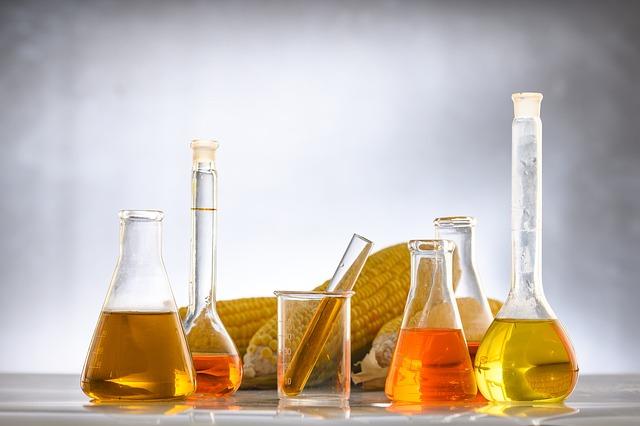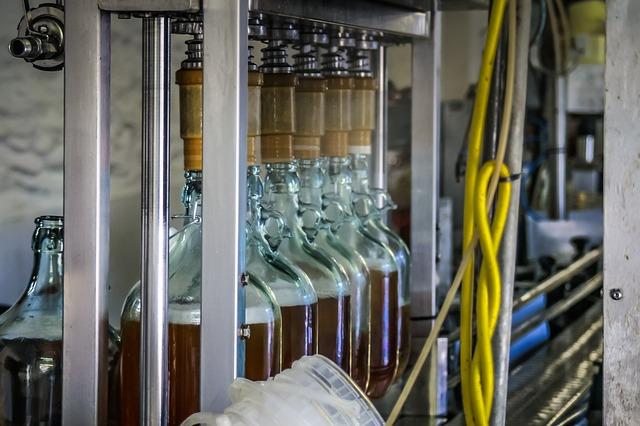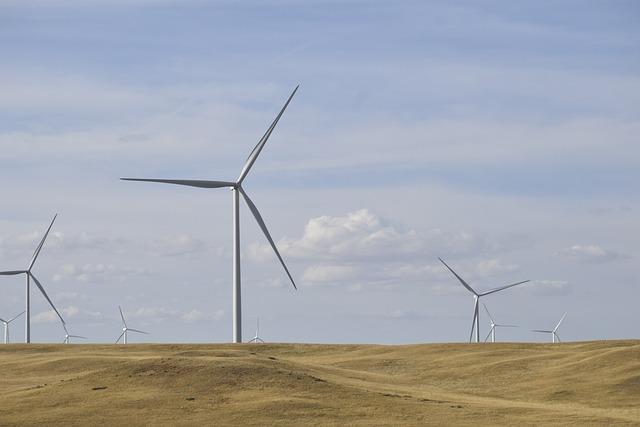- Introduction
- What is Biofuel?
- Different Types of Biofuels
- Recent Advancements in Biofuels
- Biofuel vs Fossil Fuels: Why the Shift Matters
- The Future of Biofuels
- Conclusion
- FAQs
- References
Introduction
Biofuels have long been seen as one of the most promising solutions to the world's growing energy demands, especially given our increasing concerns about climate change and the sustainability of fossil fuels. In this blog post, we’ll explore the definition of biofuels, delve into the different types of biofuels available, highlight some of the most significant recent advancements in the field, and compare biofuels with traditional fossil fuels. Finally, we will look ahead to what the future holds for biofuels in combating climate change.
Each section aims to provide you with an understanding of why biofuels are becoming increasingly important and how recent developments might further bolster their role in global energy markets.
What is Biofuel?

(Image: Pixabay/@ckstockphoto)
Biofuel refers to any fuel that is derived from biomass—plant material or animal waste. The term commonly applies to liquids such as ethanol and biodiesel, which can be used in transportation just like conventional fossil fuels like gasoline or diesel. Unlike fossil fuels, which are the result of millions of years of natural processes compressing organic matter, biofuels are typically renewable and can be generated through relatively short biological cycles. At its heart, the biofuel process involves capturing the energy stored in organic materials, known as biomass, and converting it into usable fuel.
The rationale for using biofuels stems from multiple environmental and economic reasons. Primarily, biofuels can reduce greenhouse gas emissions, particularly carbon dioxide (CO2), making them a "green" alternative to oil-based fuels. Additionally, because they are made from typically abundant organic materials—ranging from crop residues like corn stalks to animal manure—they can also offer energy independence from foreign oil supplies. Biofuels can also serve as a means to recycle agricultural by-products that would otherwise go to waste.
Given these factors, biofuels have garnered extensive attention both in the scientific community and in public policy planning over recent decades. Governments across the world, especially in regions like Europe and North America, have initiated various programs to encourage biofuel production and consumption.
Different Types of Biofuels

(Image: Pixabay/@markdnalee)
Biofuels can be broadly categorized into three main types, based on their origin and the processing method used to produce them:
Ethanol
The most well-known type of biofuel, ethanol is produced by fermenting sugars from biomass crops, primarily corn and sugarcane. Ethanol is often blended with gasoline to create fuels like E10 (10% ethanol, 90% gasoline) or E85 (85% ethanol). Ethanol works especially well in reducing the carbon footprint because it burns cleaner than traditional gasoline, producing fewer pollutants and greenhouse gases.
Biodiesel
Biodiesel is a renewable fuel derived from animal fats, vegetable oils, or recycled cooking grease, and it can be used with little or no modification in diesel engines. Due to its simplicity of production and compatibility with current infrastructure, biodiesel has experienced steady growth. It is also less toxic and biodegradable, making it an attractive option for environmental stewardship. Notably, using biodiesel results in lower CO2 emissions compared to petroleum-based diesel fuels, which adds to its appeal.
Advanced Biofuels
Second-generation biofuels, also known as advanced biofuels, are manufactured from non-food-based biomass. These include cellulosic ethanol created from cellulose (the fibrous part of plants) and algae-based fuels. Multitudes of waste products, such as agricultural residues, wood chips, and even municipal solid waste, are used for advanced biofuel production. This shift reduces competition with food-based crops, thus addressing food security concerns and providing a more sustainable option.
Recent Advancements in Biofuels

(Image: Pixabay/@ybernardi)
The last decade has seen groundbreaking advancements in the field of biofuels, pushing us closer to achieving widespread usage and overcoming the current technological constraints.
Enzyme Technology Innovations
One of the most exciting recent breakthroughs is the improvement of enzyme technologies used in biofuel production, especially in creating cellulosic ethanol. Scientists are developing enzymes that can break down plant cellulose much faster and more efficiently, significantly reducing production costs. These advancements enable the full potential of second-generation biofuels, which largely depend on cellulase enzymes to convert plant fiber into fermentable sugars.
Algae-Based Biofuels
Another key advancement is the progress being made in algae-based fuel research. Algae can produce hydrocarbons at a rapid rate and require markedly less land area compared to traditional biofuel crops like corn or soy. Recent progress has allowed scientists to cultivate algae in a controlled environment that maximizes their oil output, making algae biofuel a very promising alternative.
Genetically Engineered Crops
Scientists are also looking at genetically modifying biofuel crops to improve their yield and reduce the need for fertilizers and water. Genetic engineering can boost the amount of biomass a crop can produce per acre, leading to more feedstock for biofuel without requiring more farmland.
Synthetic Biology
Synthetic biology techniques are being applied to design microbes and engineered organisms that can better convert organic materials into biofuels. By optimizing the metabolic pathways in these organisms, researchers can reduce production costs while making the process more environmentally friendly. This approach holds promise for future energy needs while minimizing harmful impacts on the planet.
Biofuel vs Fossil Fuels: Why the Shift Matters

(Image: Pixabay/@SailingOnChocolateRoses)
There’s been a worldwide push toward biofuels as a greener alternative to fossil fuels, and with good reason. The massive reliance on fossil fuels, especially in the transport sector, has led to a worsening of climate change through the emission of greenhouse gases. On the flip side, biofuels offer a way to use renewable resources to fulfill our fuel needs.
One of the primary differences between biofuels and fossil fuels is that biofuels are renewable and carbon-neutral, meaning they can be replenished and generally do not add extra CO2 to the atmosphere because the growth of biofuel crops absorbs whatever CO2 might be released during combustion.
In contrast, fossil fuels—coal, oil, and natural gas—are extracted from the earth and represent carbon that was previously locked underground. When burned, these fossil fuels release vast amounts of CO2, contributing heavily to the problem of anthropogenic climate change.
Another critical point is the economic benefit that biofuels can bring. Increased production and use of biofuels can lower import dependency on oil-rich nations. Some biofuels are even effective in extending the life of engines due to their reduced wear-and-tear effects from cleaner burning processes.
The Future of Biofuels

(Image: Pixabay/@ybernardi)
The future for biofuels looks incredibly bright, especially as governments and industries alike increase their focus on eco-friendly energy solutions. Recent legislation and incentives have spurred innovation, and there is increasing pressure on corporations responsible for high carbon footprints to adopt renewable technologies.
As technology evolves, biofuels are likely to become much cheaper and more accessible. Currently, the production of advanced biofuels is expensive, but with continued research into enzyme efficiency, algae production, and synthetic biology, costs could drop significantly within the next 5–10 years.
Moreover, partnerships between private companies, academic institutions, and governmental bodies are accelerating progress. Funding for biofuel-related research is on the rise, particularly through grants aiming to lower carbon emissions globally.
While challenges remain—such as land-use debates, cost barriers, and resource management—the ongoing advancements signal a promising horizon where biofuels may play a central role in reducing our dependence on fossil fuels.
Conclusion
Biofuels represent a beacon of hope in the ongoing pursuit of energy sustainability and climate preservation. With numerous recent advancements improving both the cost-effectiveness and efficiency of biofuel technologies, the future looks promising for this renewable energy source. From reducing greenhouse gas emissions to decreasing dependence on fossil fuels, biofuels have the potential to reshape how humanity powers its future, and as recent technological innovations show, we may be on the cusp of seeing this potential truly realized.
FAQs
What is biofuel?
Biofuel is a form of renewable energy derived from organic materials, primarily plant and animal waste. It includes liquid fuels such as ethanol and biodiesel that can power vehicles and other machinery, reducing our dependence on fossil fuels.
What are examples of common biofuels?
Ethanol and biodiesel are the most common types of biofuels. Ethanol is produced by fermenting plant sugars, such as corn or sugarcane, while biodiesel is made from vegetable oils, animal fats, and waste cooking greases.
Why are biofuels considered better for the environment than fossil fuels?
Biofuels produce fewer greenhouse gas emissions compared to fossil fuels. Biomass used to create biofuel absorbs CO2 during growth, balancing out the emissions produced during combustion. In contrast, burning fossil fuels releases stored carbon, significantly contributing to climate change.
Will biofuels eventually replace fossil fuels?
Biofuels are viewed as a complementary solution alongside other renewable energy sources like solar and wind. While complete replacement of fossil fuels is unlikely in the near future, biofuels are expected to play a significant role in reducing carbon footprints, especially in sectors like aviation and heavy transportation.

